01 - Narrative Dynamic in Dawn Newspaper on Israel-Palestine Conflict: A Corpus-Based...
http://dx.doi.org/10.31703/gpr.2025(X-I).0110.31703/gpr.2025(X-I).01 Published : Mar 2025
-
In the context of international conflicts, the influence of language on ideological formation and political discourse cannot be underestimated. This study investigates how language is employed to construct ideological narratives and political implications within a corpus of news discourse focusing on the Israel-Palestine conflict. The primary objective is to uncover linguistic patterns that reveal... Details
-
Corpus-Based Discourse Analysis, Israel-Palestine Conflict, Dawn, Pakistani Newspaper, Sketch Engine, Transitivity
-
(1) Gul Khanda
PhD Scholar, International Islamic University, Islamabad, Pakistan.
(2) Salma Kalim
Assistant Professor, International Islamic University, Islamabad, Pakistan.
02 - Prioritizing Economic Agenda in Pakistan's Foreign Policy: Policy Lessons Based ...
http://dx.doi.org/10.31703/gpr.2025(X-I).0210.31703/gpr.2025(X-I).02 Published : Mar 2025
-
Pakistan's economic development undergoes multiple challenges due to weak economic planning, misplaced priorities, and poor economic performance. Despite having a longstanding engagement with the major economies and international financial institutions, Pakistan has not been able to derive full benefits due to ineffective planning and policies. Domestically, this economic predicament is attributed... Details
-
Pakistan, Geo-economics, Geo-Politics, Export Diversification, Value Addition, Human Rights, Economic Integration, Exports, Governance
-
(1) Muhammad Riaz Shad
Professor, Department of International Relations, National University of Modern Languages (NUML), Islamabad, Pakistan.
(2) Aqsa Malik
Research Assistant, Department of International Relations, National University of Modern Languages (NUML), Islamabad, Pakistan.
(3) Maira Tariq
Research Assistant, Department of International Relations, National University of Modern Languages (NUML), Islamabad, Pakistan.
03 - Human Trafficking in Pakistan: Legal Challenges and the Way Forward ...
http://dx.doi.org/10.31703/gpr.2025(X-I).0310.31703/gpr.2025(X-I).03 Published : Mar 2025
-
Human trafficking remains a significant human rights violation in Pakistan, affecting vulnerable groups such as women, children, and migrant workers. The country faces numerous challenges in effectively addressing this issue, despite having enacted several anti-trafficking laws. This article critically analyzes the existing legal framework and highlights the overlapping and conflicting provisions ... Details
-
Human Trafficking, Forced Labour, Child Trafficking, Legal Framework, Victim Protection, Pakistan, Palermo Protocol
-
(1) Rai Akhtar Hussain
Additional Prosecutor General, Punjab Criminal Prosecution Service, Punjab, Pakistan.
(2) Nuzhat Bashir
Deputy Prosecutor General, Punjab Criminal Prosecution Service, Punjab, Pakistan.
04 - Maritime Security Issues and Geostrategic Competition in Indian Ocean Region: Pr...
http://dx.doi.org/10.31703/gpr.2025(X-I).0410.31703/gpr.2025(X-I).04 Published : Mar 2025
-
The strategic maritime environment of the Indian Ocean (IO) has undergone significant transformation over the past two decades. The shift in regional focus from territorial to maritime borders has had a profound impact on international relations, driven by evolving defense and security dynamics. This paper explores the historical context of maritime geopolitics in the Indian Ocean and examines the... Details
-
Indian Ocean, Geopolitics, Maritime Security, Belt and Road Initiative, Indo-Pacific Strategy, CPEC, Strategic Competition, U.S.-China Rivalry
-
(1) Muhammad Imran
Assistant Professor, Department of Media, Creative Arts and Global Political Studies, Emerson University, Multan, Punjab, Pakistan.
(2) Muhammad Ramzan
Vice Chancellor, Emerson University, Multan, Punjab, Pakistan.
(3) Hina Adeeb
Assistant Professor, Faculty of Media and Mass Communication, University of Central Punjab, Lahore, Punjab Pakistan.
05 - The Deep State in Action: Military Influence on Pakistanâs Political System...
http://dx.doi.org/10.31703/gpr.2025(X-I).0510.31703/gpr.2025(X-I).05 Published : Mar 2025
-
Since 1958 Pakistan's government system has experienced substantial influence from its military authority which goes by the name Deep State. The Deep State label describes how military personnel together with intelligence agencies maintain their durable power to guide national decisions from hidden positions. Historic military involvement in Pakistan's politics extends across all eras as the milit... Details
-
Deep State, Military Influence, Civil-Military Relations, Political Instability, Pakistan's Democracy
-
(1) Sajida Begum
Associate Professor, School of Political Science, Minhaj University Lahore, Punjab, Pakistan.
(2) Robina Saeed
Associate Professor, School of Media and Communication Studies, Minhaj University, Lahore, Punjab Pakistan.
(3) Rasha Hayyat Rana
BS Student, Department of Pakistan Studies, Lahore College for Women University , Lahore, Punjab, Pakistan.
06 - Authority without Accountability: The Search for Justice in Pakistan ...
http://dx.doi.org/10.31703/gpr.2025(X-I).0610.31703/gpr.2025(X-I).06 Published : Mar 2025
-
This article examines Pakistan’s counter-terrorism laws, focusing on the Actions in Aid of Civil Power Regulation (AACPR), particularly regarding military accountability. As the involvement of FATA and PATA communities in terrorism increased, the military was granted powers to arrest individuals and detain them without trial. A key issue is the indemnity clause in the AACPR, which exempts mi... Details
-
AACPR, Accountability, Military, Indemnity Clause, Human Rights, Counter-terrorism, Pakistan
-
(1) Maryam Shahid
Researcher/LLM Student, Department of Law, International Islamic University, Islamabad, Pakistan.
(2) Mehnaz Begum
Lecturer, Department of Sharia and Law, Islamia College, Peshawar, KP, Pakistan.
(3) Iftikhar Ahmad Khan
Assistant Professor, Department of Shariah and Law, Islamia College University, Peshawar, KP, Pakistan.
07 - Educational Policies and Colonial Legacy: A Historical Analysis of Successes and...
http://dx.doi.org/10.31703/gpr.2025(X-I).0710.31703/gpr.2025(X-I).07 Published : Mar 2025
-
This research explores British educational policies in India (1835–1947) as ideological tools that reinforced administrative control and cultural dominance. Focusing on Macaulay’s Minute (1835), Wood’s Dispatch (1854), and the Indian Universities Act (1904), it analyzes their impact on native institutions, language hierarchies, and socio-economic systems. Using historical documen... Details
-
Colonial Education, Macaulayâs Minute, Indigenous Knowledge, Critical Discourse Analysis, Educational Inequality, Linguistic Hierarchy, Postcolonial Reform
-
(1) Muhammad Sajid
PhD Scholar, Department of History, The Islamia University of Bahawalpur, Punjab, Pakistan.
(2) Mazher Hussain
Associate Professor, Department of History, The Islamia University of Bahawalpur, Punjab, Pakistan.
08 - The Role of Generative AI in Undermining Electoral Integrity: A Study on AI-Driv...
http://dx.doi.org/10.31703/gpr.2025(X-I).0810.31703/gpr.2025(X-I).08 Published : Mar 2025
-
The rapid advancement of generative artificial intelligence(AI)technologies presents a transformative yet perilous frontier in the domain of electoral integrity. As tools like deepfakes and large language models(LLMs), including ChatGPT, become increasingly accessible, they offer new avenues for information manipulation, narrative distortion, and psychological influence at unprecedented scale and ... Details
-
Generative AI, Deepfakes, Large Language Models (LLMs), Electoral Integrity, International Governance, Disinformation Campaigns, Voter Trust, Election Interference
-
(1) Ali Imran
MPhil Scholar, Department of Political Science and International Relations, University of Central Punjab, Lahore, Punjab, Pakistan.
(2) Muhammad Irfan Ali
Assistant Professor Department of Political Science and International Relations, University of Central Punjab, Lahore, Punjab, Pakistan.
(3) Abdur Rehman
Lecturer, Department of Political Science and International Relations, University of Central Punjab, Lahore, Punjab, Pakistan.
09 - Role of Emerging Technologies in the Indo-Pacific: An Assessment of the Quadrila...
http://dx.doi.org/10.31703/gpr.2025(X-I).0910.31703/gpr.2025(X-I).09 Published : Mar 2025
-
The Indo-Pacific region has emerged as the epicenter of the geopolitical rivalry between the US and China. The race for developing critical emerging technologies has arisen as the latest frontier of this competition with far-reaching implications for regional and international security. This paper asserts that the US and its allies are harnessing the power of emerging technologies especially Artif... Details
-
Indo-Pacific Region, Emerging Technologies, QUAD and AUKUS
-
(1) Sobia Hanif
Assistant Professor, Department of International Relations, Fatima Jinnah Women University, Rawalpindi, Punjab, Pakistan.
(2) Zeeshan Fida
Lecturer, Department of International Relations, Fatima Jinnah Women University, Rawalpindi, Punjab, Pakistan.
(3) Noor-ul-Huda
Lecturer, Department of International Relations, Fatima Jinnah Women University, Rawalpindi, Punjab., Pakistan.
10 - Analysis of Online Religious Narratives and the Role of Social Media in Radicali...
http://dx.doi.org/10.31703/gpr.2025(X-I).1010.31703/gpr.2025(X-I).10 Published : Mar 2025
-
This paper examines the phenomenon of digital content creation triggering sectarianism, polarization and framing of radical narratives on social media. The radicals twist mainstream Islamic constructs through skewed interpretations to spread hatred and violence. The extremist and exclusivist narratives built on Takfeeri and Khawariji footprints, are stepping stone of an ideological pyramid leading... Details
-
Radicalization, Extremism, Artificial Intelligence, Digital Terrorism, Cyber Indoctrination, Narrative Building, Sectarianism, Psychological warfare
-
(1) M. Yunas Khan
Ph.D (Peace and Conflict Studies), Center for International Peace and Stability (CIPS), National University of Science & Technology (NUST), Islamabad, Pakistan. Criminologist, Public Sector Organization, Pakistan.
(2) Mubasshar Hassan Jafri
Ph.D (Peace and Conflict Studies), Peace and Conflict Studies, Center for International Peace and Stability (CIPS), National University of Science & Technology (NUST), Islamabad, Pakistan.
11 - The Role of Memes in Shaping Online Culture: Analyzing Their Influence on Politi...
http://dx.doi.org/10.31703/gpr.2025(X-I).1110.31703/gpr.2025(X-I).11 Published : Mar 2025
-
This research explores the role of memes in shaping online culture, especially their influence in molding the political discourse and social movements. The study highlights the journey and development of memes from the original image macro format to the dynamic formats followed currently.. The literature review provides a thorough context on the influence of memes on social movements, political mo... Details
-
Memes, Political Discourse, Online-Culture, Social Movements, Internet-Culture
-
(1) Muhammad Ahsan Bhatti
Assistant Professor, Institute of Media and Communication Studies, Bahauddin Zakariya University, Multan, Punjab, Pakistan.
(2) Esha Nasir
Research Scholar, Institute of Media and Communication Studies, Bahauddin Zakariya University, Multan, Punjab, Pakistan.
12 - Consumption of Political Information through Social Media Among University Stude...
http://dx.doi.org/10.31703/gpr.2025(X-I).1210.31703/gpr.2025(X-I).12 Published : Mar 2025
-
College students utilize social media to access political news, which influences their perspectives and behaviors. Facebook, Instagram, Twitter, and YouTube allow students to learn about politics, debate it, and even protest or vote. However, social media misinformation spreads swiftly, confusing pupils and skewing their opinions. Videos, memes, and photos can spice up politics. A PRISMA-based sys... Details
-
Social Media, Political News, Fake News, University Students, Media Literacy, Online Engagement
-
(1) Dur e Shahwar
Mphil Student, Department of Communication and Media Studies, Fatima Jinnah Women University, Rawalpindi, Punjab, Pakistan.
(2) Ayesha Qamar
Assistant Professor, Department of Communication and Media Studies, Fatima Jinnah Women University, Rawalpindi, Punjab, Pakistan.
(3) Zobah Vincent
MPhil Student, Department of Communication and Media Studies, Fatima Jinnah Women University, Rawalpindi, Punjab, Pakistan.
13 - Identity Construction Through Language: A Case Study of the Former Prime Ministe...
http://dx.doi.org/10.31703/gpr.2025(X-I).1310.31703/gpr.2025(X-I).13 Published : Mar 2025
-
In the light of Social Identity Theory (Tajfel & Turner, 1979), the present research has unveiled Khan's religious identity via his speech at the UN General Assembly (UNGA,2019), the research highlights his role as an advocate of human rights, peace, and justice and analyses how his lexical choices reflect his personate in front of the global Muslim community. The research presents him as a pr... Details
-
Islamophobia, Religious, Identity Construction, Social Identity Theory
-
(1) Nazia Anwar
Lecturer, Department of English, University of Gujrat, Gujrat, Punjab, Pakistan.
(2) Isha Razzaq Butt
MPhil Scholar, Department of English, University of Gujrat, Gujrat, Punjab, Pakistan.
14 - Womenâs Political Participation in South Asia: A Case Study of Pakistan ...
http://dx.doi.org/10.31703/gpr.2025(X-I).1410.31703/gpr.2025(X-I).14 Published : Mar 2025
-
Pakistan serves as a key case study in understanding women’s political participation in South Asia, where progress coexists with persistent challenges. This study examines how institutional mechanisms, historical developments, and community norms influence women's political engagement in Pakistan. The implementation of constitutional protections and legislative quotas for special seats has e... Details
-
Gender Representation, Political Employment, Reserved Seats, Patriarchy, Electoral Participation, Political Parties, Gender Equality
-
(1) Zainab
M. Phil. Scholar, Department of International Relations, Government College University Faisalabad, Punjab, Pakistan.
(2) Imran Wakil
Assistant Professor, Department of International Relations, Government College University Faisalabad, Punjab, Pakistan.
(3) Anwar Ali
Assistant Professor, Department of Political Science, Government College University Faisalabad, Punjab, Pakistan.
15 - Climate Change and Heat Exhaustion: A Study in Kahuta ...
http://dx.doi.org/10.31703/gpr.2025(X-I).1510.31703/gpr.2025(X-I).15 Published : Mar 2025
-
Heat exposure is a well-known health risk that impairs human performance and capacity to function at temperatures that are already typical in tropical and subtropical climates. Global climate change is characterized by increased exposure to heat throughout the year's warmest seasons. In health effect analyses of climate change, heat fatigue and diminished human performance are frequently disregard... Details
-
Global Warming, Climate Change, Heat-Related Illness, Extreme Heat Events, Heat-Exhaustion, Heat Stress, Thermal Stress, Heatwaves
-
(1) Momina Shewaz
Graduate, Department of Anthropology, PMAS Arid Agriculture University, Rawalpindi, Punjab, Pakistan.
(2) Abid Ghafoor Chaudhry
Associate Professor/Chairman, Department of Anthropology, PMAS-Arid Agriculture University Rawalpindi, Punjab, Pakistan.

 Volume XI, Issue I (Winter 2026)
Volume XI, Issue I (Winter 2026)  Volume X, Issue IV (Fall 2025)
Volume X, Issue IV (Fall 2025) 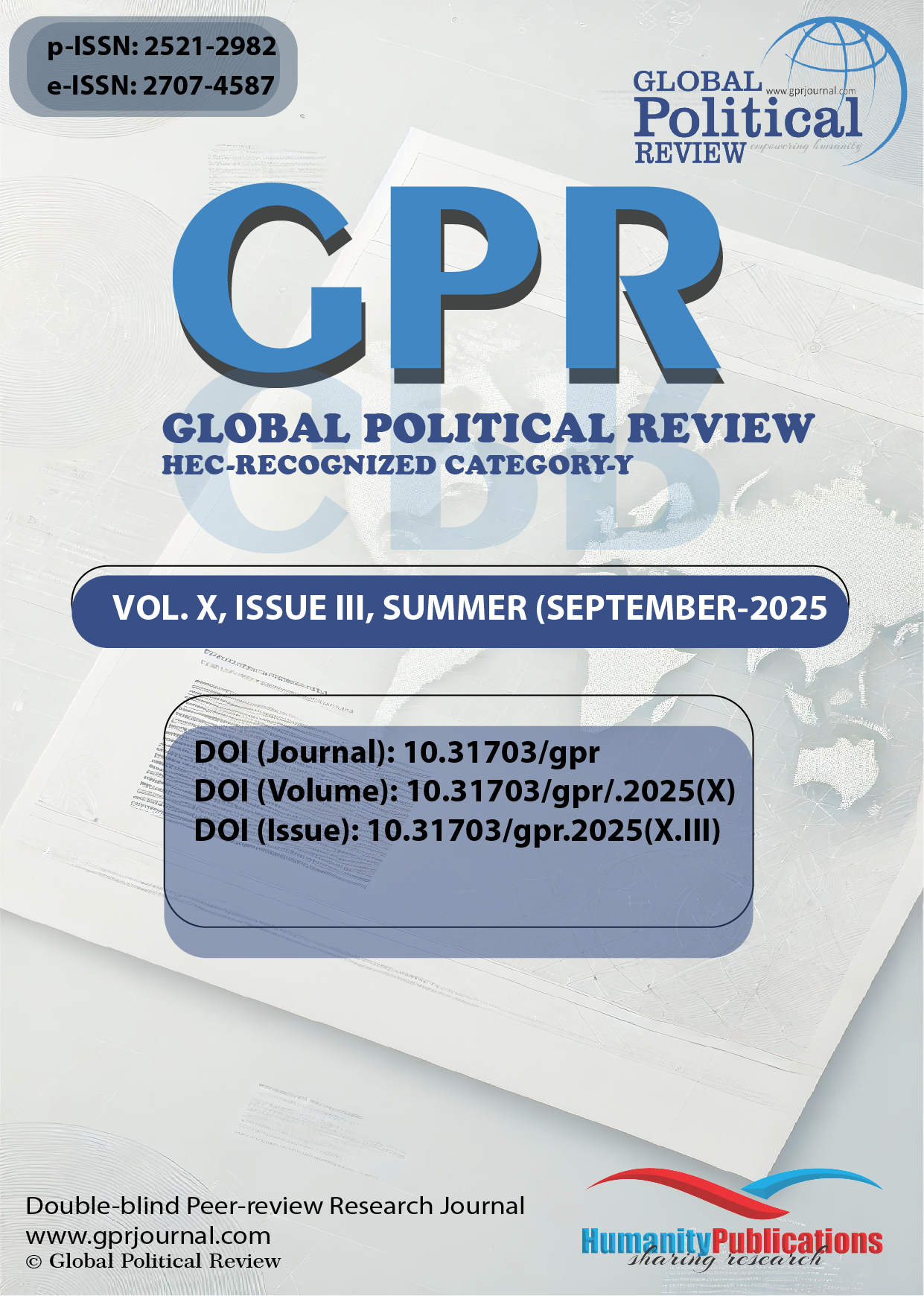 Volume X, Issue III (Summer 2025)
Volume X, Issue III (Summer 2025) 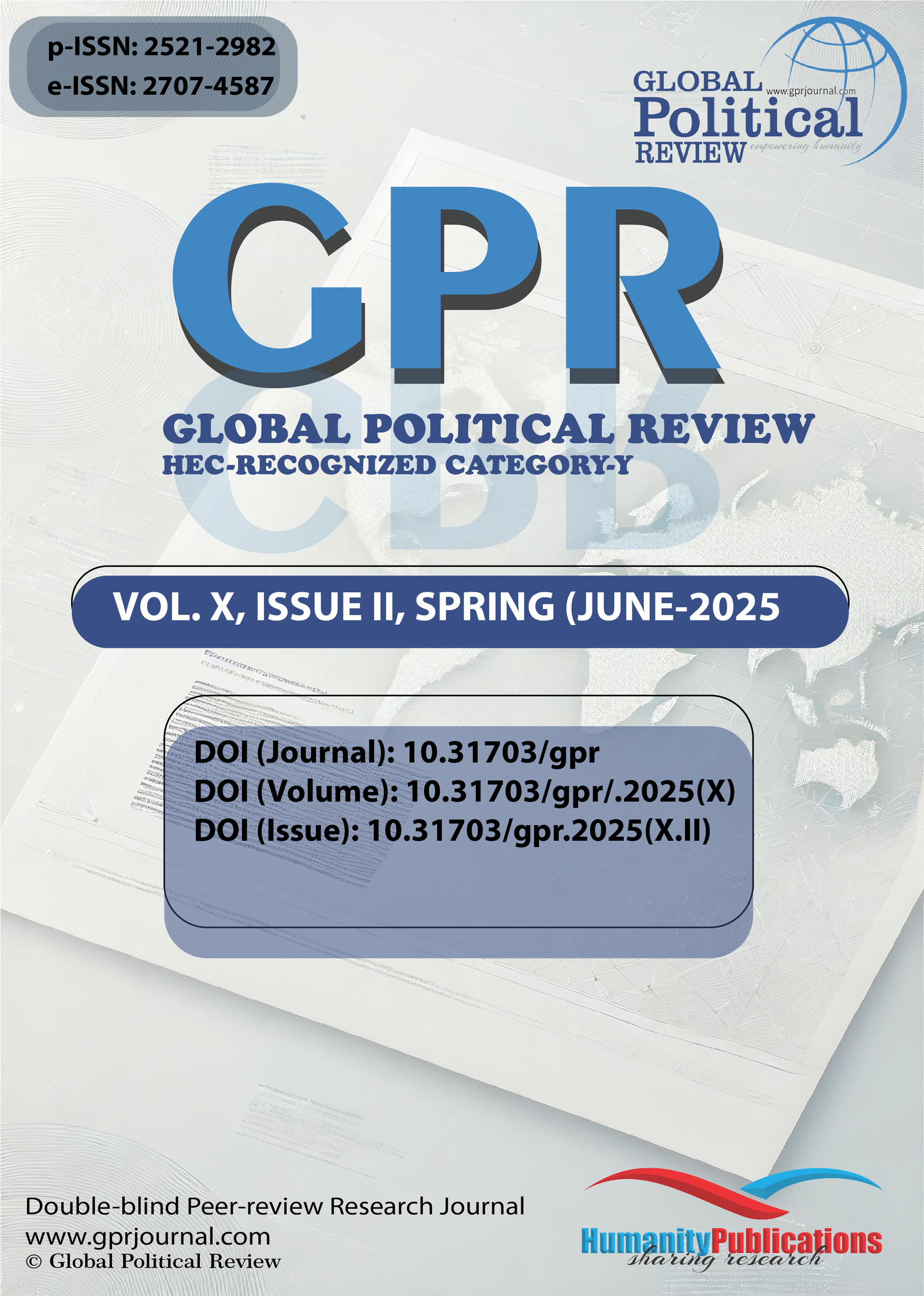 Volume X, Issue II (Spring 2025)
Volume X, Issue II (Spring 2025)  Volume X, Issue I (Winter 2025)
Volume X, Issue I (Winter 2025)  Volume IX, Issue IV (Fall 2024)
Volume IX, Issue IV (Fall 2024)  Volume IX, Issue III (Summer 2024)
Volume IX, Issue III (Summer 2024)  Volume IX, Issue II (Spring 2024)
Volume IX, Issue II (Spring 2024)  Volume IX, Issue I (Winter 2024)
Volume IX, Issue I (Winter 2024) 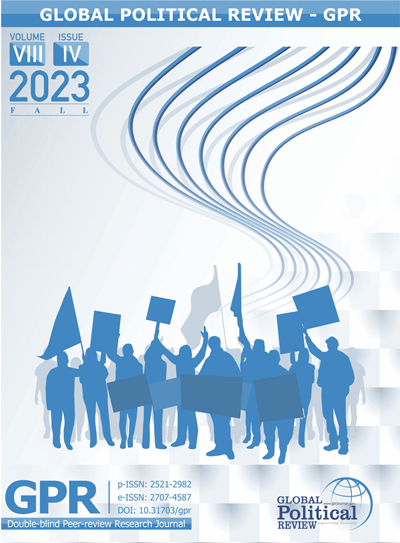 Volume VIII, Issue IV (Fall 2023)
Volume VIII, Issue IV (Fall 2023)  Volume VIII, Issue III (Summer 2023)
Volume VIII, Issue III (Summer 2023)  Volume VIII, Issue II (Spring 2023)
Volume VIII, Issue II (Spring 2023) 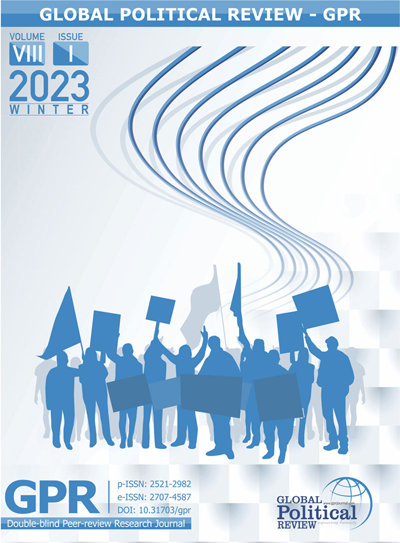 Volume VIII, Issue I (Winter 2023)
Volume VIII, Issue I (Winter 2023) 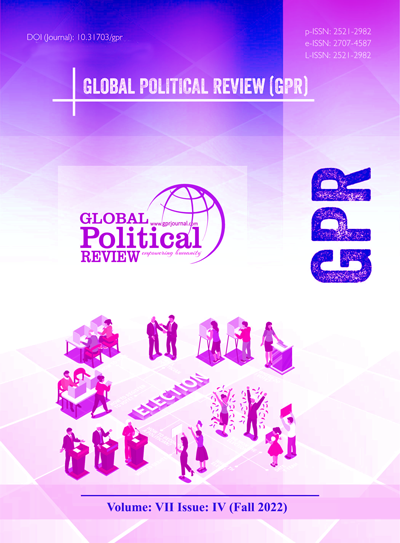 Volume VII, Issue IV (Fall 2022)
Volume VII, Issue IV (Fall 2022)  Volume VII, Issue III (Summer 2022)
Volume VII, Issue III (Summer 2022)  Volume VII, Issue II (Spring 2022)
Volume VII, Issue II (Spring 2022)  Volume VII, Issue I (Winter 2022)
Volume VII, Issue I (Winter 2022) 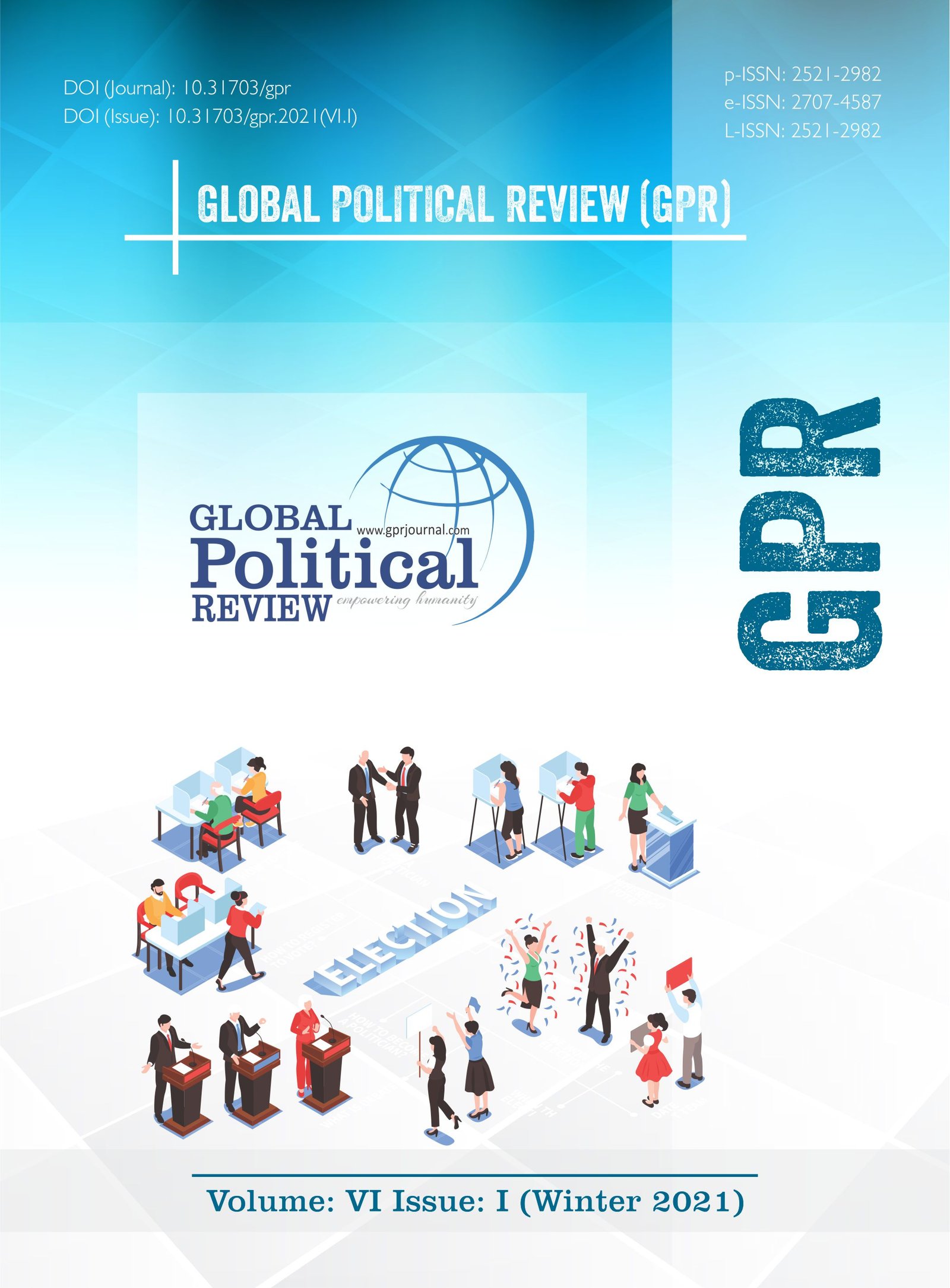 Volume VI, Issue IV (Fall 2021)
Volume VI, Issue IV (Fall 2021) 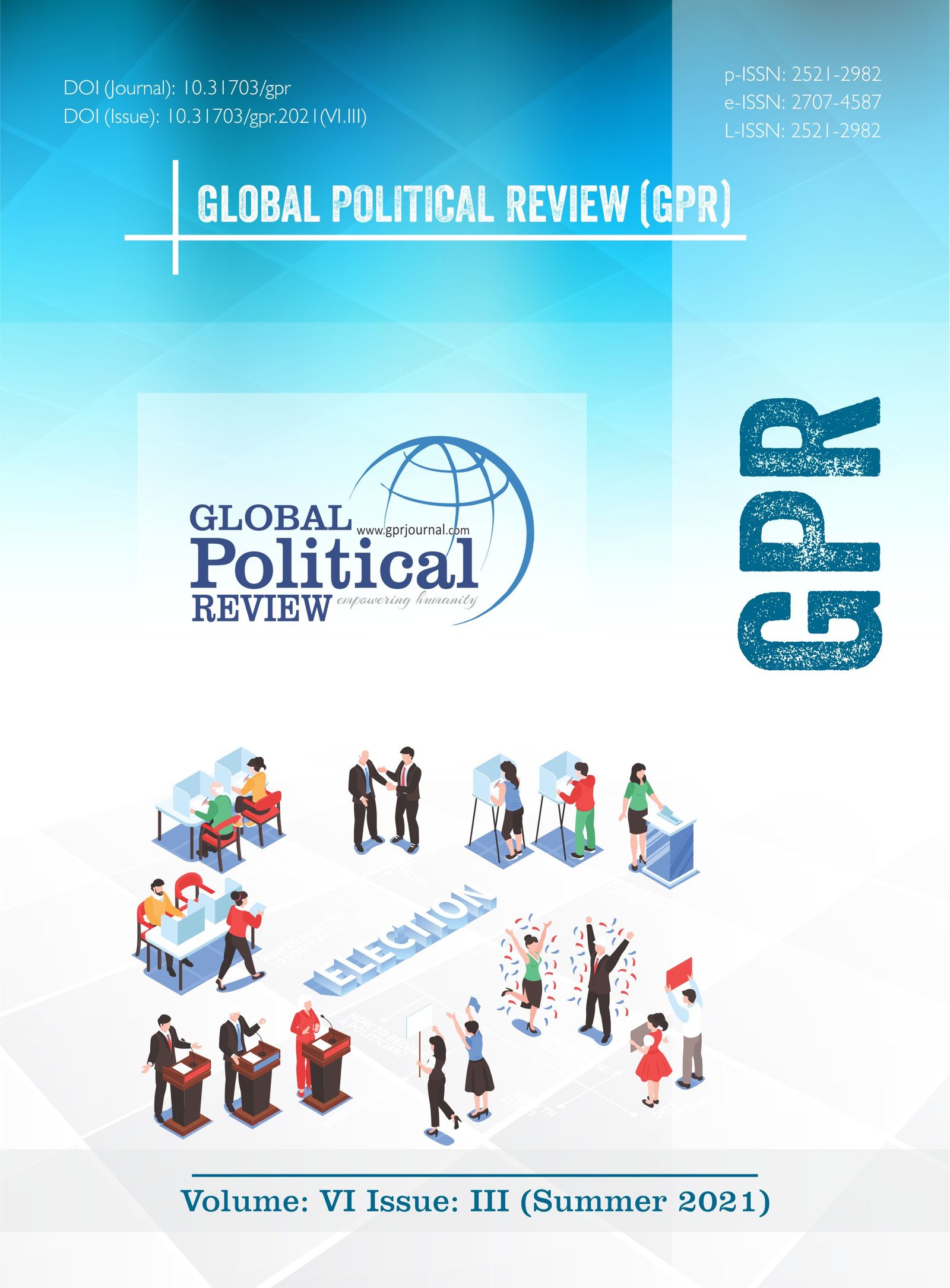 Volume VI, Issue III (Summer 2021)
Volume VI, Issue III (Summer 2021)  Volume VI, Issue II (Spring 2021)
Volume VI, Issue II (Spring 2021) 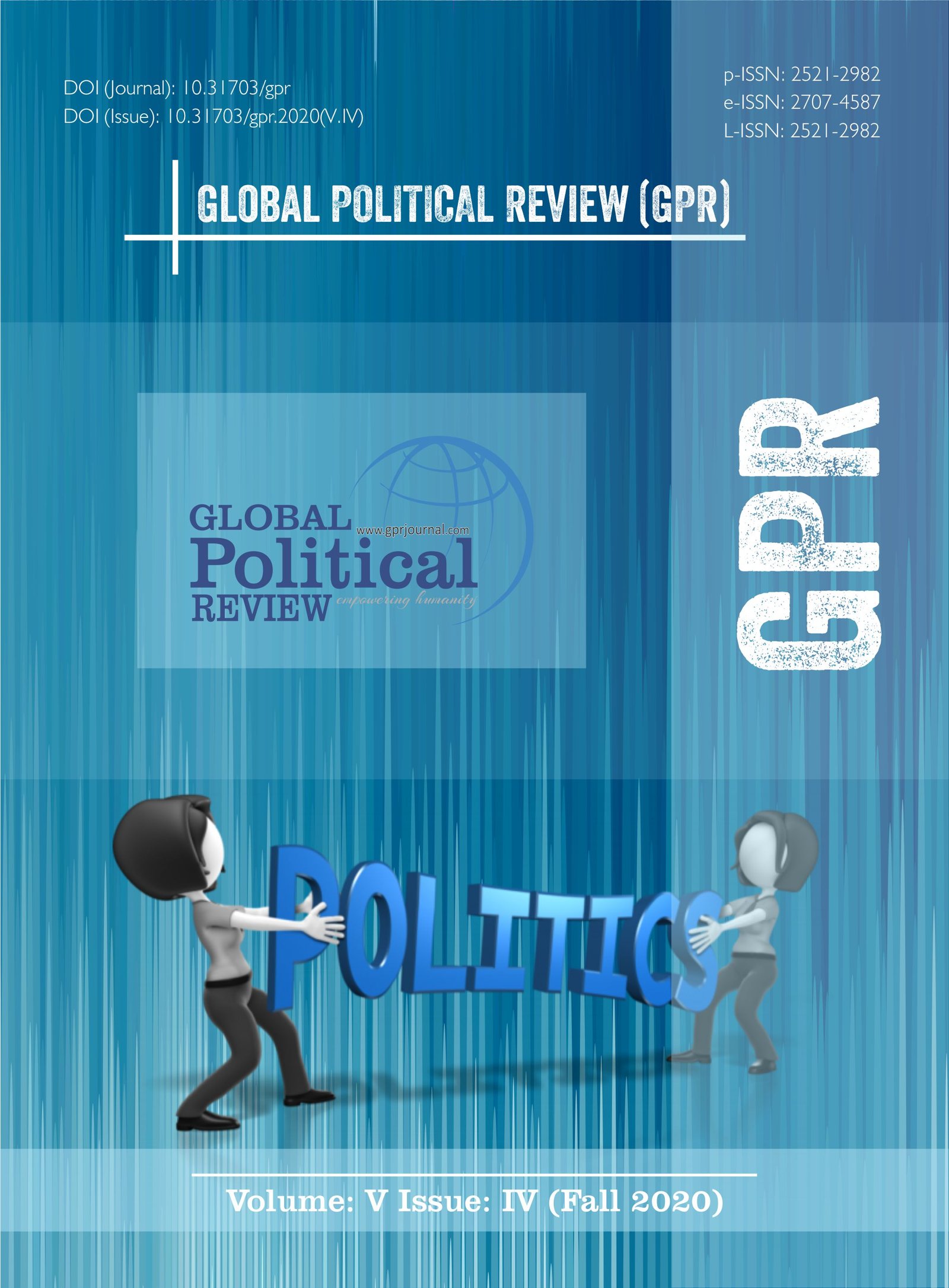 Volume V, Issue IV (Fall 2020)
Volume V, Issue IV (Fall 2020)  Volume V, Issue III (Summer 2020)
Volume V, Issue III (Summer 2020) 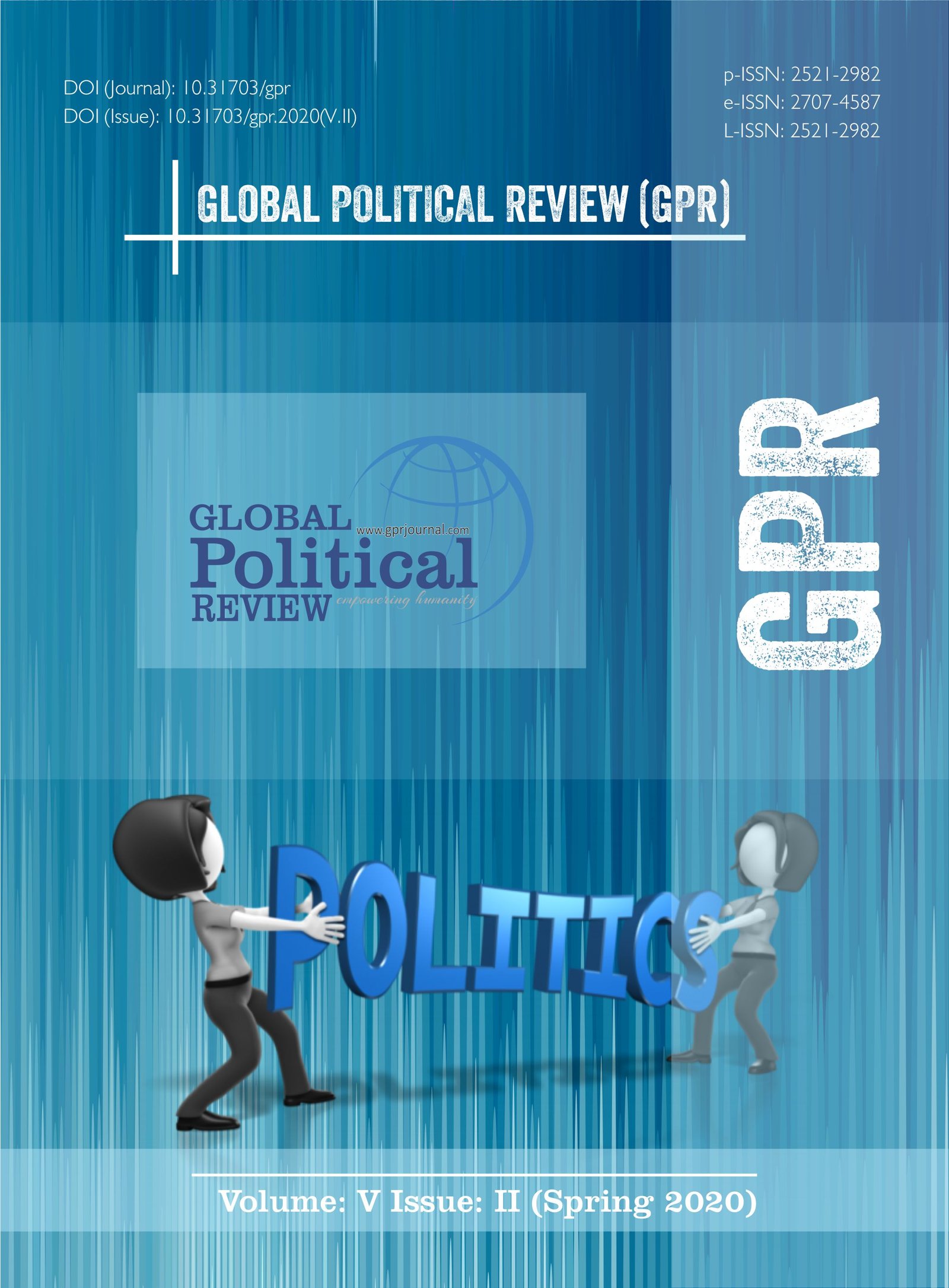 Volume V, Issue II (Spring 2020)
Volume V, Issue II (Spring 2020) 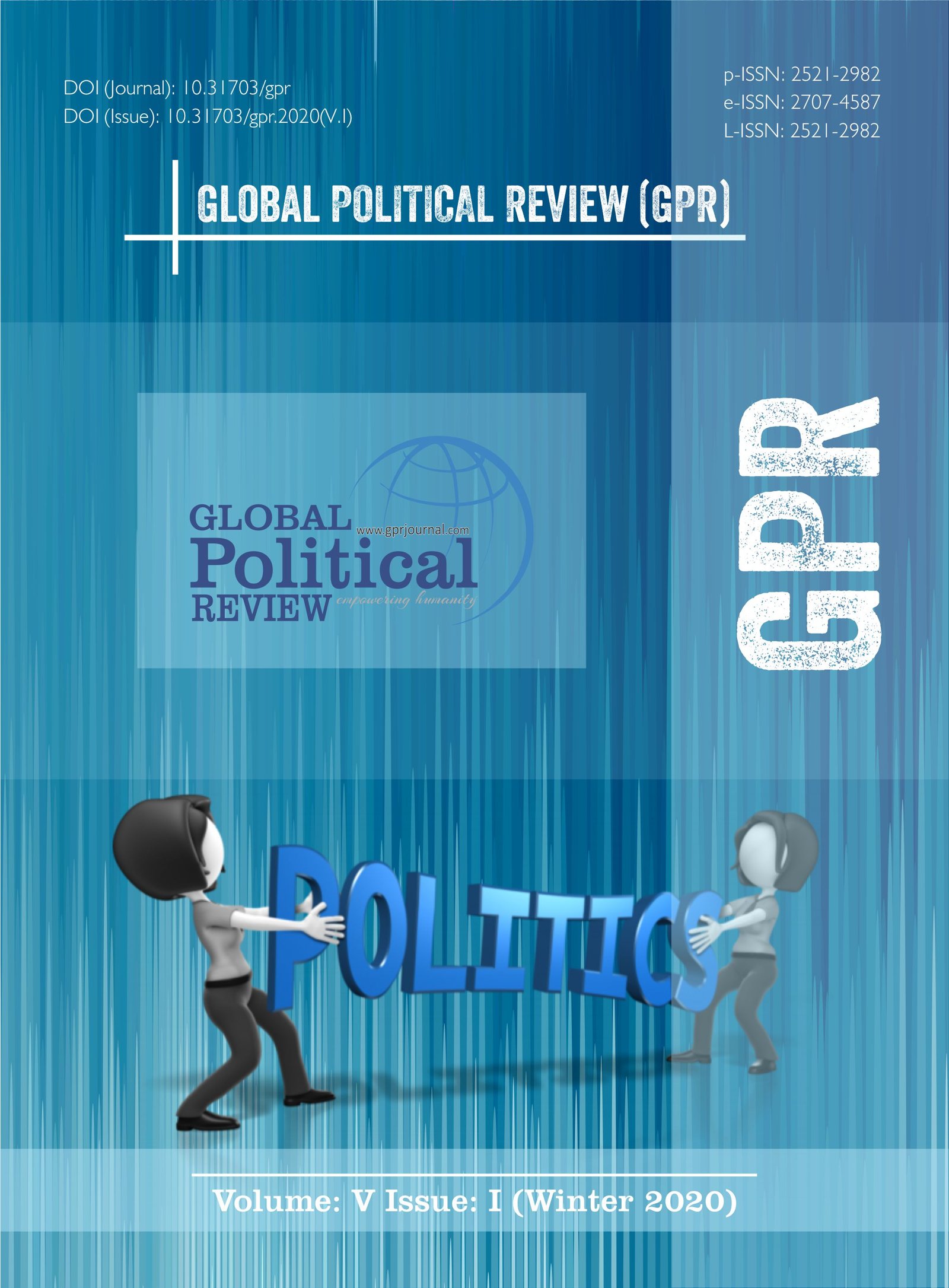 Volume V, Issue I (Winter 2020)
Volume V, Issue I (Winter 2020)  Volume IV, Issue IV (Fall 2019)
Volume IV, Issue IV (Fall 2019)  Volume IV, Issue III (Summer 2019)
Volume IV, Issue III (Summer 2019)  Volume IV, Issue II (Spring 2019)
Volume IV, Issue II (Spring 2019) 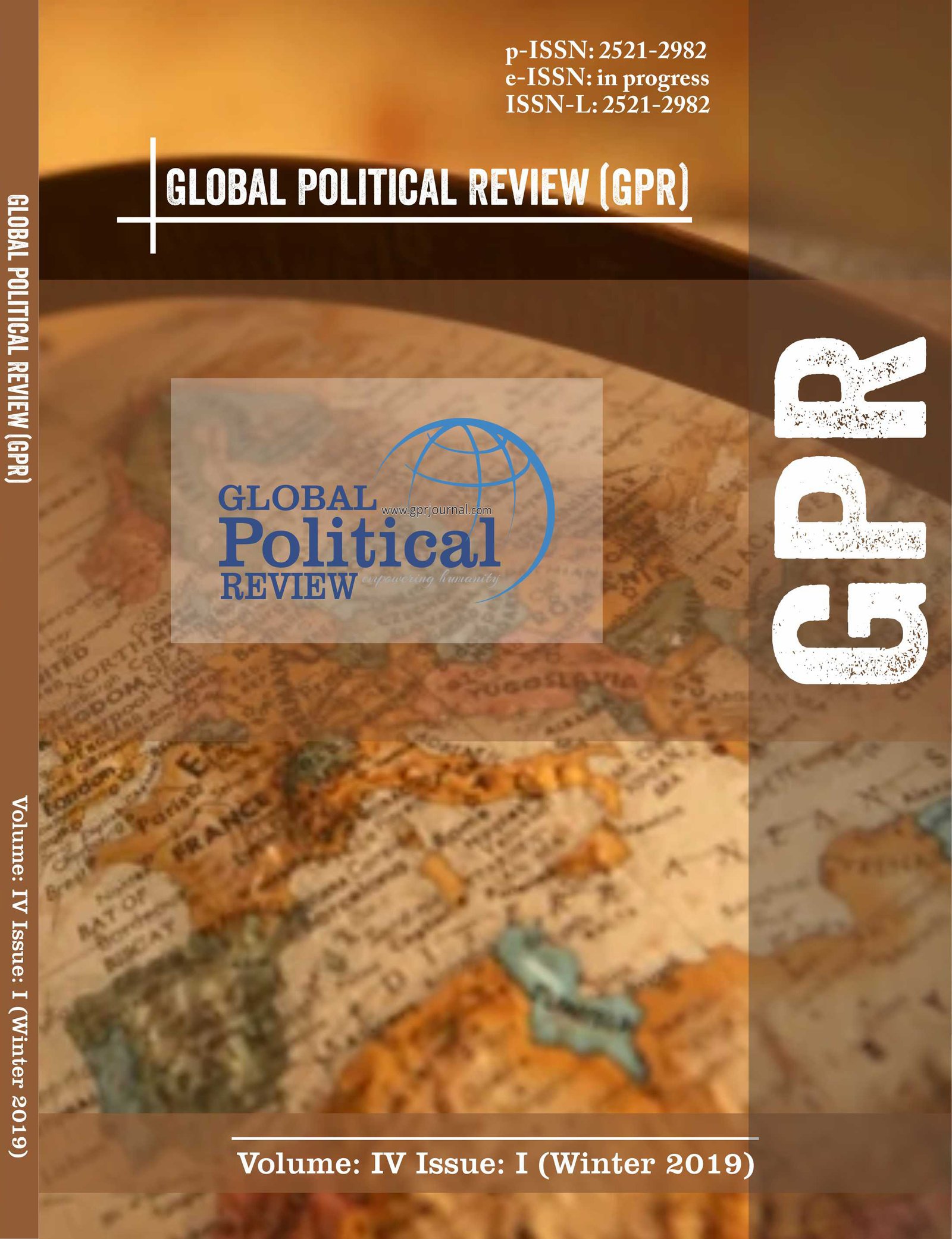 Volume IV, Issue I (Winter 2019)
Volume IV, Issue I (Winter 2019) 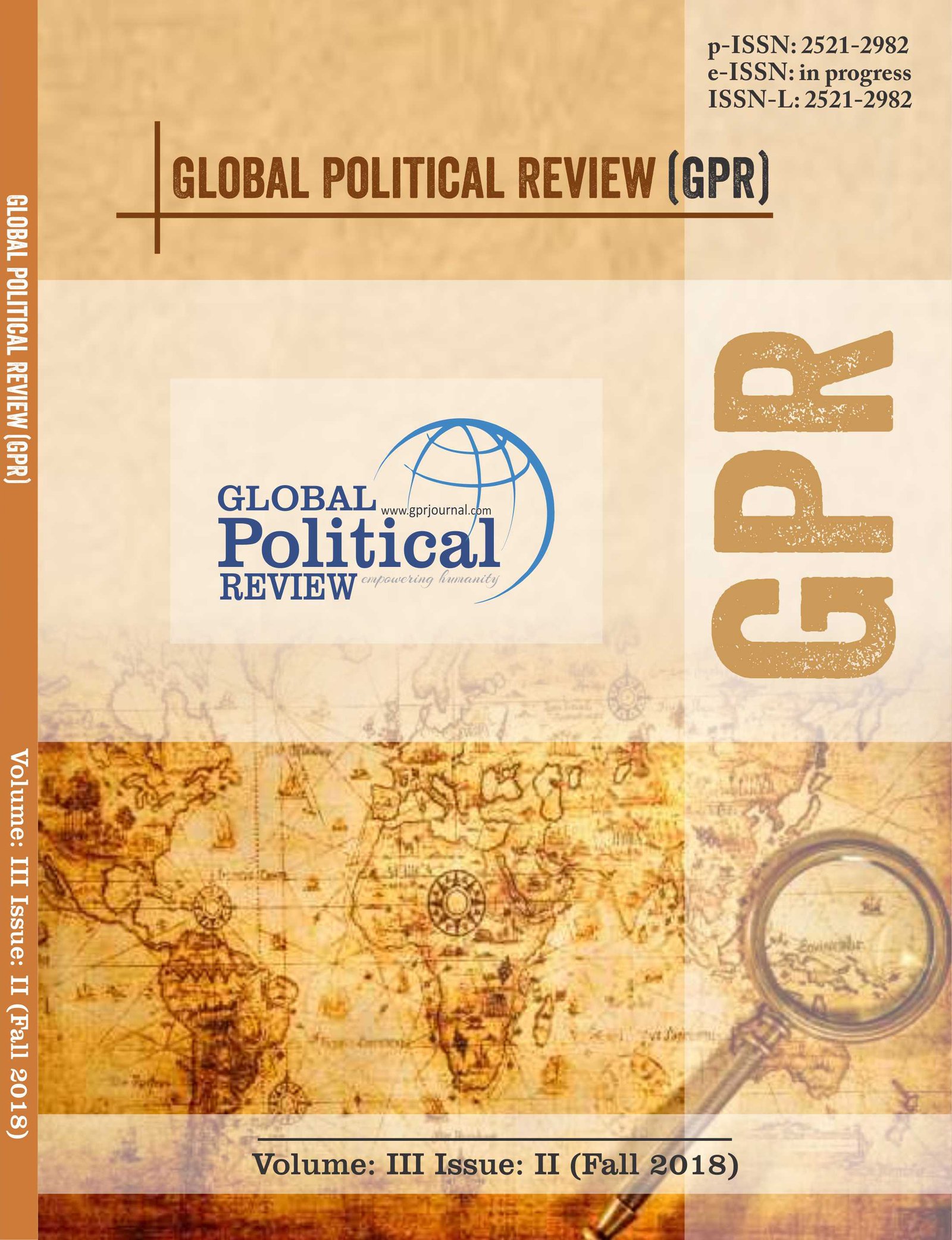 Volume III, Issue II (Fall 2018)
Volume III, Issue II (Fall 2018) 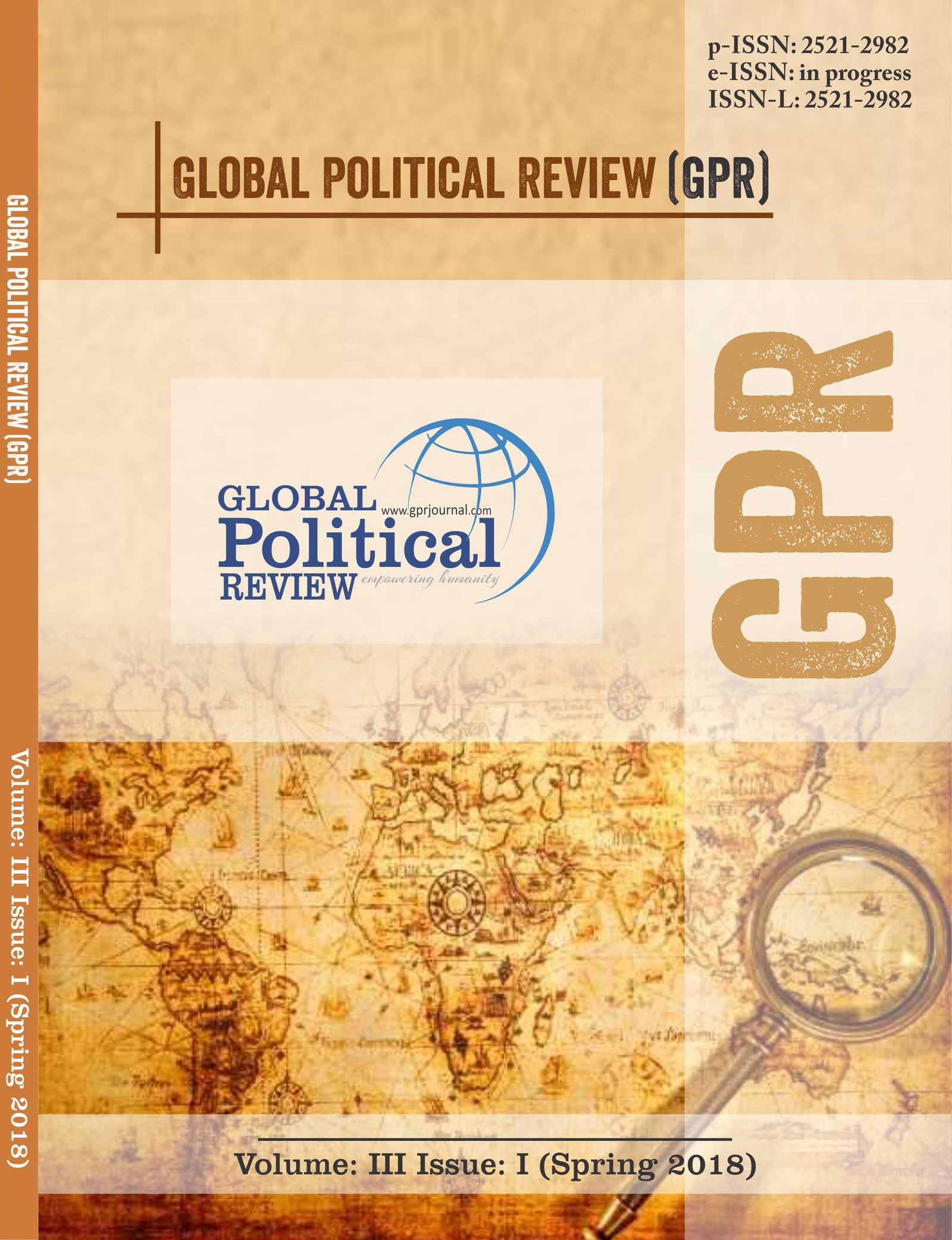 Volume III, Issue I (Spring 2018)
Volume III, Issue I (Spring 2018)  Volume II, Issue I (Fall 2017)
Volume II, Issue I (Fall 2017)  Volume I, Issue I (Fall 2016)
Volume I, Issue I (Fall 2016)